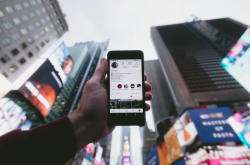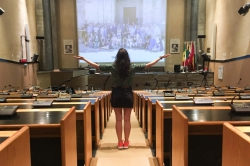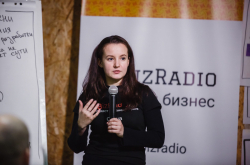While testing, the program identified Donald Trump, the 45th US President who is actually married, as single. According to the developers, this inconsistency came up because of Trump's abnormal activity in the media: the businessman and his assistants use Twitter like a bachelor.
"We all know about his wife Melania," says the researcher, "But in this case, we are studying whether all Trump's assistants are married or not. We are not guessing who Trump is, but who runs his social media."
The study was reported at the AAAI Conference on Artificial Intelligence in San Francisco.
In a rare fit of attention to scientific work, the findings were reported by a variety of mainstream media around the world, from the British Daily Mail and Independent, to Science News and New York Post.
Beyond the celebrity appeal, the research can have a wide range of applications. For example, recruiters can learn more about people who are applying for a job. More generally, characterizing personality through activity in social media will help discover illegal groups as well as find people prone to depression or suicide and support them.
Co-author of the paper, Kseniya Buraya, researcher at ITMO University's International laboratory "Computer technologies", is doing an internship at National University of Singapore, where she studies approaches for describing human personality through social networks. She processes user data with this algorithm and then adapts the information to Myers-Briggs Type Indicator (MBTI), a scale of psychological types based on Jung theses.
The scale describes a person in terms of how he or she interacts with the world which, in turn, is easiest to learn from social media. Kseniya Buraya explains: "Many scientific sources associate a person psychological type with his marital status. So, we decided to check how precisely we can predict this parameter to use it for making human psychological portraits in the future".
The article won a student contest of the most affluent scientific event in its field — AAAI Conference on Artificial Intelligence.
Photo credit: Creative Commons




